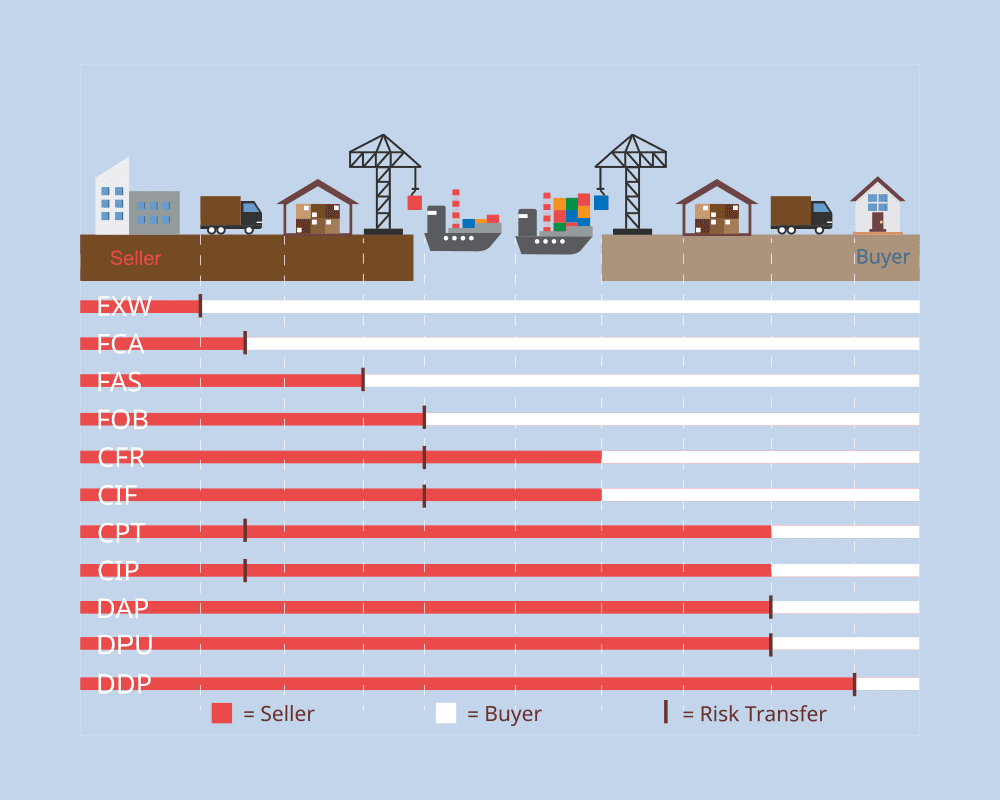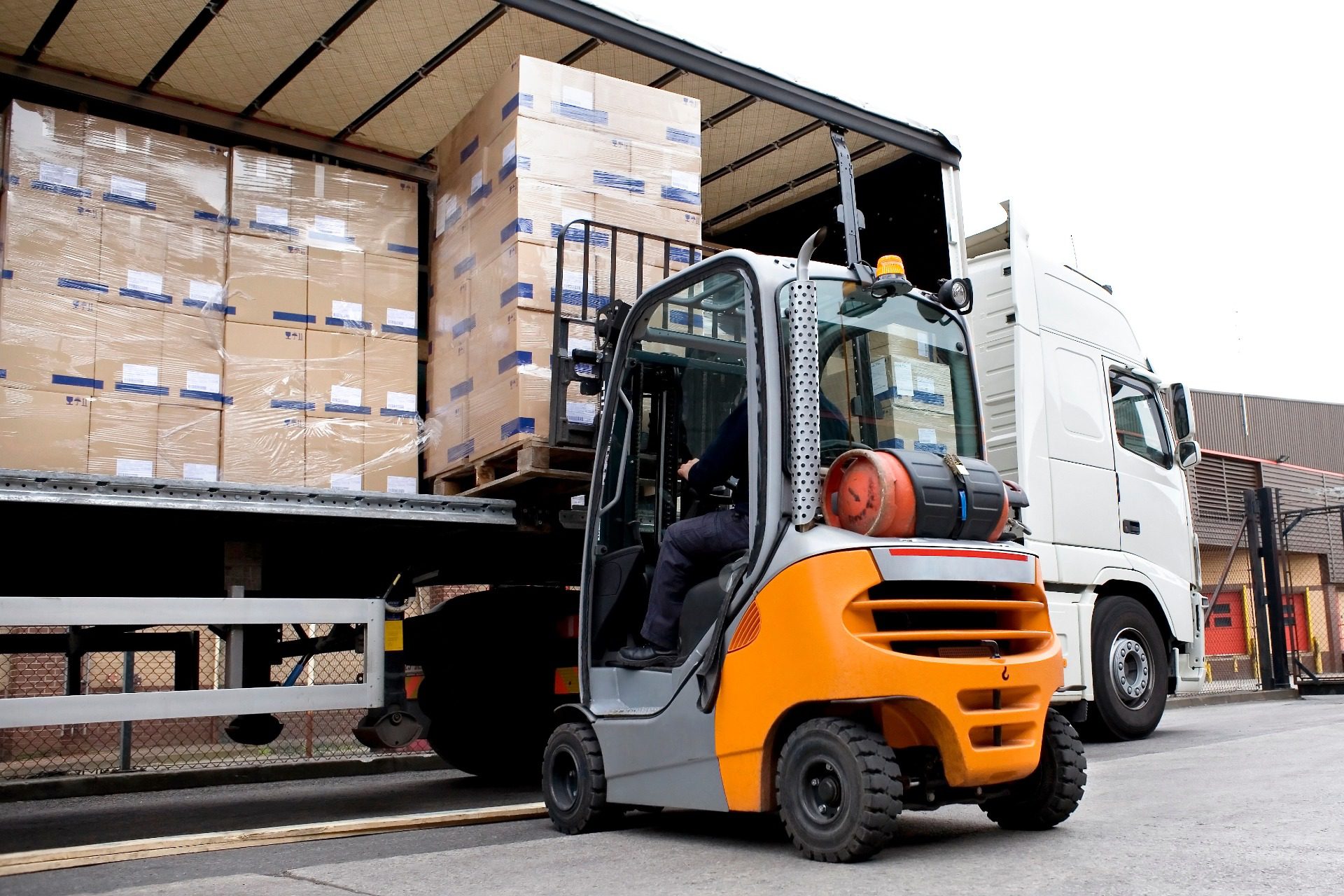Buying and selling goods internationally have never been more popular. Whether you’re a buyer or seller of products or services, it’s crucial to know the expected shipping practices of inventory or cargo. This guarantees that your customers will have a positive and streamlined experience, and that items are delivered on time and as expected.
Especially for international deliveries that are more complex than domestic freight, a strong understanding of delivery and shipping procedures is key to ensuring products are actually received, and you still make a profit.
Any business that ships products internationally has likely come across the Incoterms “DDP,” “DDU,” and “DAP” shipping terms before. Shortly after World War I, there was a push toward mutual profitability among nations through international trade. The International Chamber of Commerce (ICC) was formed, and DDP and DDU Incoterms were created to develop a more robust understanding of shipping practices and international commerce standards. If you ship or order product internationally, keep reading – we’re exploring the differences between DDP vs DDU an other issues and terms, like:
- Delivery Duty Paid
- Advantages of DDP
- Delivery Duty Unpaid
- Advantages of DDU
- Delivery At Place
- Advantages of DAP
What is DDU vs DDP vs DAP
In a nutshell, DDP means the seller is responsible for all aspects of shipping, including customs clearance and delivery, while DDU means the seller is only responsible until the goods are unloaded at the port of destination. DAP means the seller is responsible for transportation costs, but the buyer is responsible for customs clearance and import taxes. These distinctions are important for understanding roles and responsibilities in the shipping process. Let’s get into more detail on each.
What is Delivery Duty Paid (DDP)?
DDP stands for Delivery Duty Paid within the ICC’s shipping jurisdictions. When consumers order a product to be delivered internationally, there are many steps between cargo packaging and receipt. For example, you’ll deal with shipping fees, Customs clearance, warehousing, and more.
In a DDP arrangement, the seller assumes financial responsibilities for all transportation costs up until the point at which the consumer receives the product. Occasionally the seller will embed these charges within product prices or shipping fees for the buyer to partially cover, but the shipper will still be liable for any damages or losses before the delivery is received by the buyer.
DDP Seller Responsibilities
In a DDP shipping agreement, the seller has several responsibilities to guarantee a successful delivery. These include things like:
- Verify that all risks, such as loss or damage to cargo, are financially covered up to the location of the delivery.
- Handle export processes at the shipment location with all required protocols respected, like providing permits and documentation as needed for specific cargo items.
- Assume any costs for Customs clearance procedures at the delivery location. If products are taxed due to a fluctuation in value (VAT), the seller also pays for this additional cost.
- Ensure that products and goods arrive at the international location to properly cease liability.
- Assume financial liability for the cost of transport from packing areas to delivery locations.
- Organize and establish carrier contacts with any and all carriage companies that assist with the delivery of cargo.
Advantages of DDP
DDP shipping services are an efficient way to build a strong direct relationship between buyer and seller. DDP options take care of every step within international shipping. Some of the most significant benefits of DDP shipping arrangements feature:
- Streamlined Process: Cohesively handling all transportation requirements allows freight forwarders peace of mind and less work. DDP services guarantee that the shipping entity handles cargo pickup, quality maintenance, necessary paperwork and costs, and finally, the delivery logistics all under the same shipping agreement.
- Fewer Risks Involved: DDP agreements assume liability for cargo up until the products have been successfully delivered to the buyer’s door. DDP solutions have a streamlined freight process for international shipments, so products are less likely to get lost or become unavailable to the consumer during transit.
- Financial Transparency: Another benefit of DDP services is that the final tally is known as soon as the customer places an order. All potential cargo taxes and fees experienced during the exporting process are already included prior to purchase. This makes receiving cargo much simpler for importers, since they don’t need to be concerned about unexpected costs prior to receipt.
- Hands-Off Customer Experience: During a DDP shipping agreement, the buyer doesn’t need to worry about Customs complications or additional shipping requirements after the cargo has arrived in the country of delivery. Goods arrive directly at their door, a huge draw for additional business.
What is Delivery Duty Unpaid (DDU)?
DDU shipping services vary slightly from DDP shipping procedures, with one major distinction separating the two Incoterms.
While DDP shipping services ensure that cargo arrives at the buyer’s physical location after it’s imported, in a delivered duty unpaid shipping arrangement, the seller is only responsible for ensuring the shipment arrives at the country’s drop-off location. The buyer then takes financial responsibility for any Customs charges or transportation costs to arrange for goods to arrive at their location.
DDU Seller Responsibilities
DDU shipping and DDP shipping are very similar, but the lack of financial responsibility for the seller after the cargo arrives at the foreign location is the most considerable distinction between the two. Some of the major responsibilities of the seller in a DDU shipping service are to:
- Assume responsibility for providing licenses, permits, and documentation needed for shipping to the buyer pickup location.
- Deliver buyer’s goods to the country of delivery.
- Assume all financial responsibility for any damage, theft, or losses that occur within the shipment prior to cargo arriving at the delivery destination.
- Ensure that the buyer’s goods arrive at the specified location of the shipment.
- Pay for shipping charges for any transport fees regarding labor and loading costs. This can also include purchasing insurance for cargo.
- Provide the buyer with an update regarding successful deliveries.
Advantages of DDU
While DDP shipping may place more financial responsibility on the seller to successfully deliver cargo to the delivery location, DDU terms allow the buyer to assume more control over their shipping procedures. Some of the most advantageous elements of DDU shipping services include:
- Cheaper Options: DDP shipping services have contracted freight forwarders and shipping clients under the seller’s jurisdiction. There’s always the chance of more affordable shipping options that the seller is unaware of due to a lack of experience with the country’s shipping services that the importer could access more easily.
- Avoid Legal Complications: As a seller, taking a step back from the shipping affairs of a foreign country certainly lessens the workload. While the seller is still responsible for getting cargo there, DDU shipping allows the buyer, who’s already more aware of their country’s shipping standards, to take financial responsibility, saving the seller money upfront.
- Supply Chain Visibility: Importers have scarce control over freight movement and supply chain transparency. There’s a limit to the amount of reporting that can be accessed within a DDP shipping service. In contrast, a DDU service allows you to track every step of the cargo’s progress from the moment it arrives in the country.
- Less Seller Control: Especially for international buyers looking to maintain consistent inventory, having complete control over the transportation of products once they’ve been imported can be a win-win. The ability to control costs and learn about delivery delays quickly supports business growth and lets sellers take a step back from managing the buyer’s business practices.
What is Delivered-At-Place Shipping (DAP)?
DAP shipping, or Delivered-At-Place shipping, is a trade arrangement where sellers assume financial responsibility for all costs and risks, absorbing all possible losses of transporting goods to a location. The contract states the seller is responsible for documentation, packaging, unloading charges, export approval, and delivery to the location, regardless of if it’s a warehouse, factory, or port.
The buyer assumes the cost and risk once goods arrive at their destination and are available for unloading. The buyer still pays for import duties, taxes, and unloading costs and is expected to provide documentation to Customs and import the shipment to the given country. DAP shipping can be a great arrangement for intermodal shipping. A DAP shipping arrangement allows for any transport mode (ocean, land, rail, etc.), applying to any combination of these transportation options.
DAP Seller Responsibilities
DAP shipping terms might seem very similar to a DDP and DDU contract, and that’s because many people use DAP and DDU shipping terms interchangeably. This is because, for both arrangements, the seller’s responsibilities will be more involved than the buyers.
In many cases, DDU has essentially been omitted in incoterms since 2010 by introducing the more favorable DAP shipping terms, which cover many of the same functions of DDU. As a merchant who handles a lot of freight shipping, it’s important to understand what the seller’s responsibilities include in a DAP shipping arrangement. For DAP shipping, the seller is expected to:
- Handle all export packaging/marking
- Provide goods, commercial invoices, and documentation
- Provide export licenses and Customs formalities
- Arrange details of pre-carriage and delivery
- Assume financial responsibility for loading charges and pre-shipment inspection
- Coordinate the delivery to named destination
- Provide proof of delivery to the buyer
Advantages of DAP Shipping
While a DDP arrangement gives the buyer more control over the shipping procedures, DAP shipping terms outline a contract that gives the seller more control over the entire freight process. Similar to many of the advantages of DDU, some of the attractive features of DAP shipping include:
- Buyer Awareness of Accountability: With a DAP shipping arrangement, the buyer knows who’s responsible for any additional costs that are incurred during the shipping process. According to the ICC, after the goods are accessible to the buyer, they’re liable for any risks and losses connected with the cargo.
- Low Liability: DAP shipping terms also provide a low liability option and fairly broad contract for buyers wanting to transfer all risks associated with shipping onto the seller due to their reduced risk in buying goods.
- Cash Flow and Inventory Management: On the buyer’s side of the transaction, DAP shipping can help with expensive commodities that need consistent restocking from sellers. Buyers can leverage a DAP shipping agreement with sellers where the seller takes care of the shipment and the buyer pays once the goods arrive at the destination. By reordering often, sellers can have a bonded warehouse at the buyer’s location, simplifying inventory management and streamlining cash flow between both parties. Buyers can place smaller orders and have them taken care of quickly.
What is LDP (Landed-Duty Paid)?
LDP, or Landed-Duty Paid, is an Incoterm that places the responsibility for all costs, including transportation, customs clearance, and import taxes, on the seller. This means that the seller is responsible for delivering the goods to the buyer’s location, and ensuring that all customs fees and import taxes are paid. With LDP, the buyer is not responsible for any additional costs beyond the agreed-upon price for the goods and shipping. This Incoterm is often used for high-value goods and can simplify the shipping process for the buyer.
ShipCalm Can Help with DDP, DDU and DAP Shipments!
Whether you’re a buyer or seller, it’s essential to understand the differences between DDP vs DDU vs DAP Incoterms to determine the most cost-effective shipping solutions for your company’s needs.
There are both similarities and key differences between a DDP and DDU arrangement, so companies need to decide which shipping service is best for their specific business model.
As a trusted third-party logistics service, ShipCalm offers cost-effective shipping options for sellers wanting to focus on growing their business with streamlined supply chain management. ShipCalm works with many of the top eCommerce, EDI, ERP, and shipping companies to arrange third-party businesses to outsource their shipping logistics.
Get a custom price from ShipCalm today to determine if a DDU or DDP shipping service is what your business needs to grow.




